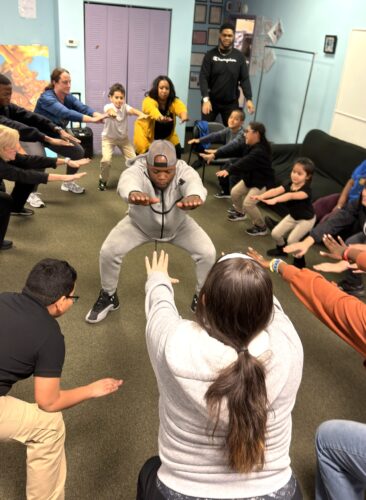Tax Holiday on Back-To-School Supplies is Halted
This story is being republished under a special NJ News Commons content-sharing agreement. Link to story: njspotlightnews.org/2024/07/nj-back-to-school-tax-holiday-ends-lasted-just-2-years
While many families are readying for back-to-school shopping amid a period of stubborn inflation, New Jersey is no longer offering a tax break to ease the burden for students and parents gearing up for a new school year.
Gov. Phil Murphy and fellow Democrats who control the Legislature enacted a law late last month that formally ended New Jersey’s “annual sales tax holiday” for back-to-school items after just two years.
In the wake of that action, the state Division of Taxation earlier this month officially announced the halting of the state tax holiday in a notice posted online. The notice instructs all sellers to “charge sales tax on all taxable items.”
The move to cancel a sales tax break that had been offered over a 10-day period during each of the last two summers in New Jersey comes as the cost of school supplies remains relatively inflated, according to the latest national data.
However, the effectiveness of such state-level tax breaks has also been hotly debated among tax policy experts nationally, since the tax relief is typically only provided temporarily, and anyone can take advantage of it, regardless of income and residency.
In all, families with children in elementary school up through high school are planning to spend an average of $874.68 this summer on clothing, shoes, school supplies and electronics, according to the latest results of an annual survey released by the Washington, D.C.-based National Retail Federation.
Total back-to-school spending is expected to reach nearly $39 billion nationwide this year, down slightly from last year’s high of $41.5 billion, according to the NRF survey.
Higher costs:
Inflation concerns remain “a key issue” as this year’s back-to-school shopping kicks off, said NRF chief economist Jack Kleinhenz during an online seminar Tuesday.
“Inflation has come down, but prices have not,” he said.
In all, the cost of traditional school supplies has increased by more than 20 percent, according to a report published earlier this month by the Deloitte financial firm.
The state tax break would “cut the cost for the most essential items needed for educational success and help make New Jersey more affordable for our students and families,” Gov. Phil Murphy said when it was introduced.
“People have good memories of only a few years ago,” Kleinhenz said. “This stays in their consumer memory.”
“They have to prioritize [and] they have to be more selective,” he said.
This year, the most popular shopping destinations are expected to be online, 57 percent; department stores, 50 percent; discount stores, 47 percent; clothing stores, 42 percent; and electronics stores, 23 percent, according to the NRF survey.
“Certainly, consumers [are] looking to find a deal and looking to make every dollar count,” said Katherine Cullen, NRF’s vice president of industry and consumer insights.
Tax holiday details:
In New Jersey, the sales tax holiday offered during each of the last two years spanned 10 days from late August to early September.
In addition to permanent sales-tax exemptions for clothing and footwear that are written into state law, a wide range of additional items purchased both in-store and online were temporarily exempted from the state’s 6.625 percent sales tax during the 10-day tax holidays in 2022 and 2023.
‘If governments truly want to help low-income consumers, targeted assistance policies are better options.’ — from a report published by the Tax Foundation
Among the items that fell under the temporary exemption during those tax holidays were traditional school supplies, including pens, pencils and notebooks, as well as art supplies, such as paint and paintbrushes.
But also exempt were computers that cost less than $3,000, as well as equipment used for sports and recreation, such as helmets, shoulder pads, shin guards and mouth guards, among other items.
When it debuted, Murphy said the state tax break would “cut the cost for the most essential items needed for educational success and help make New Jersey more affordable for our students and families.”
Pros and cons: However, according to budget documents, the state is now expected to save an estimated $35 million by not offering the back-to-school tax break during the 2025 fiscal year, which began July 1.
While New Jersey has halted its tax holiday, 19 states will be holding or have already offered some form of a sales tax holiday this year, including for back-to-school shopping, according to the Tax Foundation, a Washington, DC-based group that closely tracks state and federal tax trends.
“Sales tax holidays are politically popular with elected officials because they offer direct discounts, whether real or perceived, to consumers in a highly visible way,” according to a report published Tuesday by the Tax Foundation.
“Consumers often believe they’re getting a good deal. Thus, they remain popular despite their economic inefficiencies, unintended consequences, and frequent inability to achieve their stated goals,” the report said.
While some research suggests the tax holidays can benefit lower-income families who tend to spend a larger share of their annual earnings on school supplies than more affluent peers, some tax experts have questioned whether the revenue sacrificed to tax holidays could be better utilized to fund services that more directly aid lower-income families.
“If governments truly want to help low-income consumers, targeted assistance policies are better options,” according to the Tax Foundation report.
“Better yet, policymakers could permanently ease tax burdens by trimming rates year-round—but permanent solutions tend to be deprioritized when politically easier temporary gimmicks like sales tax holidays persist,” the report said.







